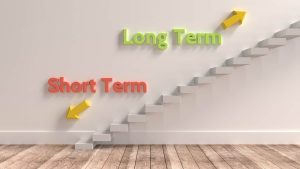Is it better to invest in the FTSE 100 or S&P 500?


After a positive start to 2025, global stock markets started sliding in late February. This decline accelerated in April, after President Trump announced higher US import tariffs. At their lows, the S&P 500 was down 21.3% from its 2025 high, while the FTSE 100 slumped 15.3%.
Both indexes have since rebounded strongly, reaching new record highs on 31 July. On Friday, 8 August, the S&P 500 closed at 6,389.45, 0.6% below its all-time high. Meanwhile, the Footsie closed at 9,095.73, 1% off its top.
America the beautiful
For long periods in history, returns from UK shares broadly matched those of American stocks. But since the global financial crisis of 2007/09, US stocks have thrashed British shares.
Over one year, the US index has jumped 19.6%, versus 11.4% for its UK counterpart. Over five years, this gap widens to 90.7% against 50.8%, respectively. Over two decades, the US market has made investors roughly twice as much as London. As legendary investor Warren Buffett cautions, “Never bet against America”.
The dividend difference
However, the above figures exclude cash dividends — payouts made by some companies to shareholders. Dividends are far higher from UK shares than US stocks, as American corporations often reinvest profits into future growth. Conversely, many UK companies offer generous cash yields.
Today, the S&P 500’s dividend yield is 1.2% a year. The FTSE 100‘s cash yield is 3.3% a year — almost 2.8 times as much. And when including reinvested dividends, gaps between these two markets shrink significantly.
Pricey problem?
It’s also worth noting that the S&P 500 is more highly valued than the Footsie. It trades on 24.8 times trailing earnings, 31.9% above its 10-year average of 18.8 times. The Footsie is on a multiple of 13.8 times historic earnings — inexpensive both in historical and geographical terms.
History suggests that buying high-priced assets leads to lower future returns. Therefore, the smart thing would be to sell my US stocks and buy UK shares, agreed? Alas, it’s not that simple, because US corporations typically grow their earnings faster than British businesses. So what can I do?
My free lunch
American economist Harry Markowitz once remarked, “Diversification is the only free lunch in investing”. Spreading risk around reduces volatility and improves long-term returns. Hence, I hedge my bets by investing as widely as possible.
Instead of choosing to invest in either the US or the UK, my family portfolio buys into both stock markets, plus many more. We do this via an exchange-traded fund, the Vanguard FTSE All-World UCITS ETF (LSE: VWRP). With shares listed in London, this passively managed investment fund charges just 0.22% a year.
In total, this ETF invests in 3,634 large businesses across stock markets worldwide, aiming to track the performance of the FTSE All-World Index, with dividends reinvested. The share price is up 15.3% over one year and 75.5% over five years. Admittedly, two-thirds of this ETF’s assets are in North America, but it still delivers global exposure.
Of course, when financial markets melt down again, this fund will tumble, but perhaps not as hard as the (more volatile) S&P 500. For me, this ETF handily combines American exceptionalism with global growth. It’s also huge, making its shares highly liquid and easy to trade. For these reasons, it’s become our biggest-ever passively managed shareholding!
The post Is it better to invest in the FTSE 100 or S&P 500? appeared first on The Motley Fool UK.
More reading
- How much do you need in a Stocks and Shares ISA to make a £22,000 annual income?
- Forecast: here’s what £20,000 invested in Tesco shares could be worth by 2027
- After surging 72% in a year, are Barclays shares worth buying?
- This boring FTSE 100 stock is forecast to grow twice as fast as the Rolls-Royce share price!
- £10,000 in savings? Here’s a smart way for investors to target £2,853 in yearly passive income from a FTSE 100 dividend star…
The Motley Fool UK has no position in any of the shares mentioned. Cliff D’Arcy has an economic interest in the shares mentioned above. Views expressed on the companies mentioned in this article are those of the writer and therefore may differ from the official recommendations we make in our subscription services, such as Share Advisor, Hidden Winners and Pro. Here at The Motley Fool, we believe that considering a diverse range of insights makes us better investors.





